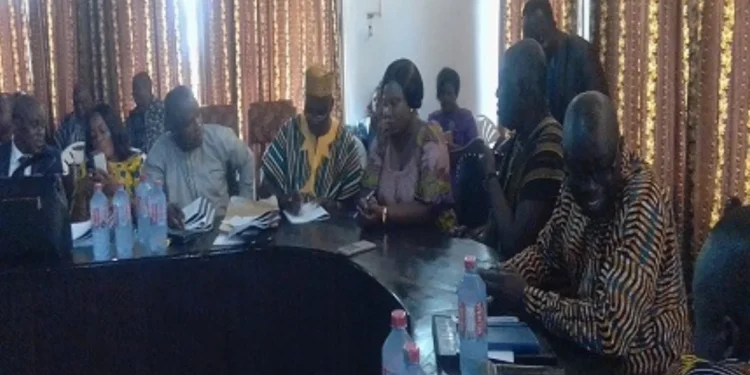According to the Public Financial Management Compliance League Table (PFMCLT), just eleven out of the 261 Metropolitan, Municipal, and District Assemblies (MMDAs) in Ghana have effective financial management systems.
These eleven MMDAs, representing only four percent of the total, received a pass mark of 50 percent or higher for their financial performance in the 2022 fiscal year.
This information was disclosed during the launch of the PFMCLT, the first-ever Public Financial Management Compliance League Table for MMDAs.
The Internal Audit Agency (IAA) organized the event in collaboration with the Centre for Local Governance Advocacy, with funding from the World Bank.
Key areas of assessment for the MMDAs included their compliance with planning laws, the alignment of their composite budgets with national laws, the implementation of budgets with regard to procurement and contracts, and the assessment of quarterly and annual accounting reports.
Other factors considered were the quality of internal audit reports, risk-based plans, annual performance reports, and irregularities found in the Auditor General's report for 2022.
The top-performing MMDAs in the assessment were as follows:
- Weija Gbawe Municipal Assembly – 59 percent
- La Dade Kotopon Municipal Assembly – 57.5 percent
- Adenta Municipal Assembly – 57 percent
- Kwahu South Municipal Assembly – 56.5 percent
- Effia Kwesimintsim Municipal Assembly – 55.5 percent
- Mfantsiman Municipal Assembly – 53 percent
- Ayawaso West Municipal Assembly – 52.5 percent
- Wa Municipal Assembly – 52 percent
- Assin Fosu Municipal Assembly – 51 percent
- Krachi Nchumuru District Assembly – 50.5 percent
- West Akim Municipal Assembly – 50 percent
Notably, all six Metropolitan Assemblies failed to meet the 50 percent pass mark. However, 20 Municipal Assemblies and 5 District Assemblies outperformed the Metropolitans.
Four out of the six Metropolitan Assemblies scored higher than the national average of 22 percent.
Furthermore, more than 80 percent of the Assemblies failed to submit sufficient documents demonstrating their compliance with accounting and budgeting requirements during the Public Financial Management (PFM) cycle. This led to concerns regarding the use of resources.
In response to these findings, Dr. Eric Oduro Osae, Director-General of the Internal Audit Agency, announced that Assemblies who failed to submit their documents for assessment would be reported to the Ministry of Finance and the Ministry of Local Government, Decentralization, and Rural Development for appropriate action.
Dr. Osae emphasized the importance of putting control systems in place to ensure the effective utilization of government resources at the local level.
He noted that only four percent of Ghana's local governments having strong financial management systems was concerning and highlighted the 48 percent increase in irregularities in MMDAs from 2021 to 2022, as noted in the Auditor General's report for 2022.
The IAA will investigate these issues and provide support to strengthen control systems and build capacity in the less developed areas.





















